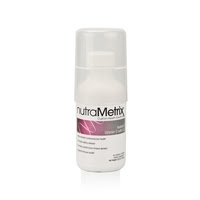 |
| nutraMetrix Isotonix Vitamin D with K2 |
London: Findings of a large-scale genetic study suggest that vitamin D deficiency can trigger hypertension among people.
Researchers say the results of the D-CarDia collaboration -- world's largest study to examine the causal association between vitamin D and hypertension -- provide a strong case for food fortification with vitamin D in order to prevent some kinds of cardiovascular disease.
Although observational studies have already shown this link, a large-scale genetic study was necessary before the cause and effect could be proven.
The findings will be presented by Vimal Karani S. from the Institute of Child Health, University College London at the annual conference of the European Society of Human Genetics (ESHG) in Paris on Tuesday.
The research data, involving 35 studies, over 155,000 individuals, and numerous centres in Europe and North America, showed that those with high concentrations of 25-hydroxyvitamin D (25(OH)D) had reduced blood pressure and, therefore, a reduced risk of hypertension.
"We knew from earlier observational studies that low 25(OH)D concentrations were likely to be associated with increases in blood pressure and hypertension, but correlation is not causality," Vimal Karani says.
"Additionally, randomised controlled trials of vitamin D supplementation in humans have produced inconsistent effects on cardiovascular outcomes. The whole picture was somewhat confused, and we decided to try to figure it out once and for all," the researcher adds.
The researchers used genetic variants known as single nucleotide polymorphisms, or SNPs, as proxy markers to reflect individual's vitamin D status in order to test for a causal association with blood pressure and hypertension, reports a daily.
When the results were analysed, they found a significant link. For every 10 percent increase in 25(OH)D concentrations, there was a 8.1 percent decrease in the risk of developing hypertension.